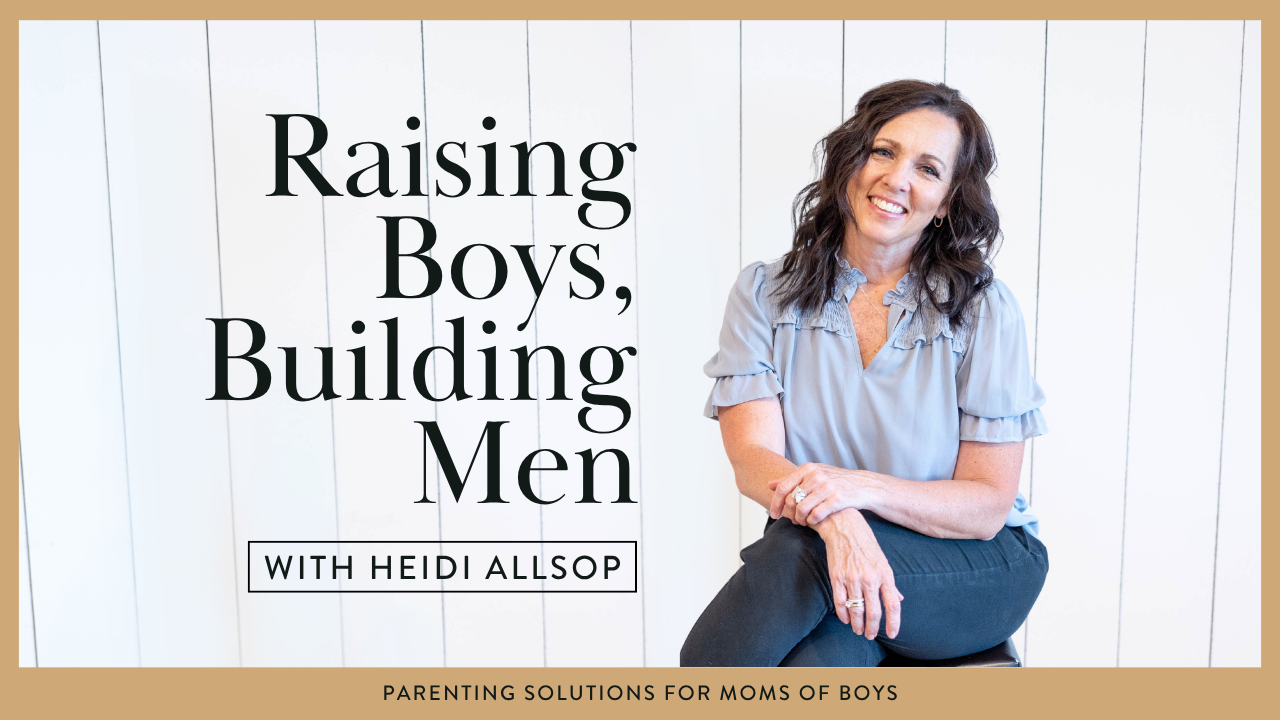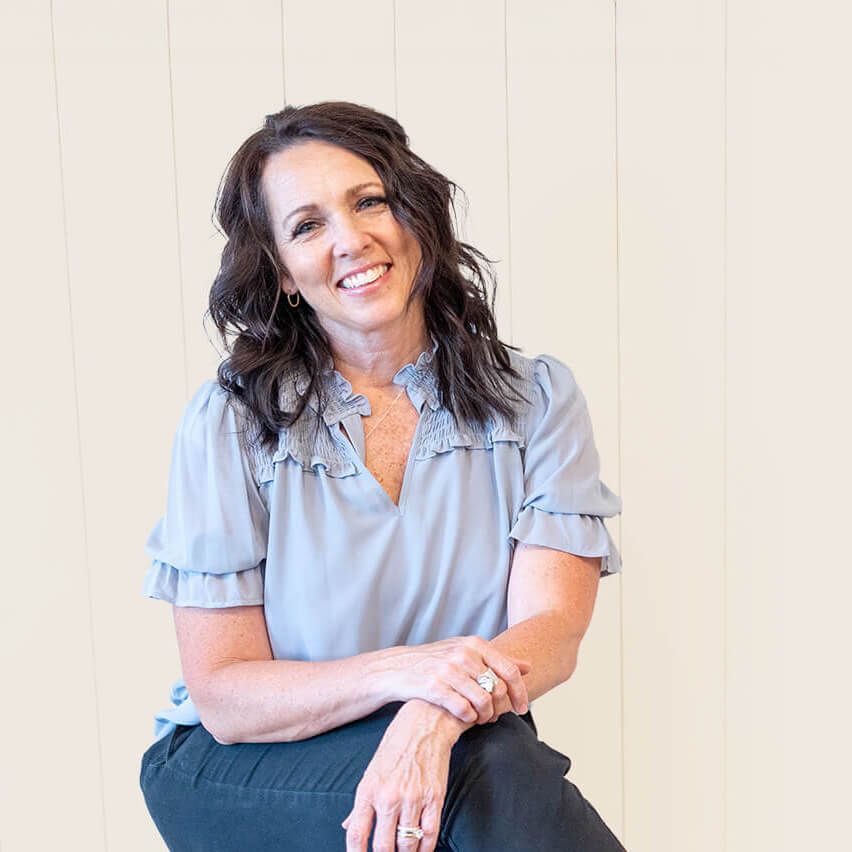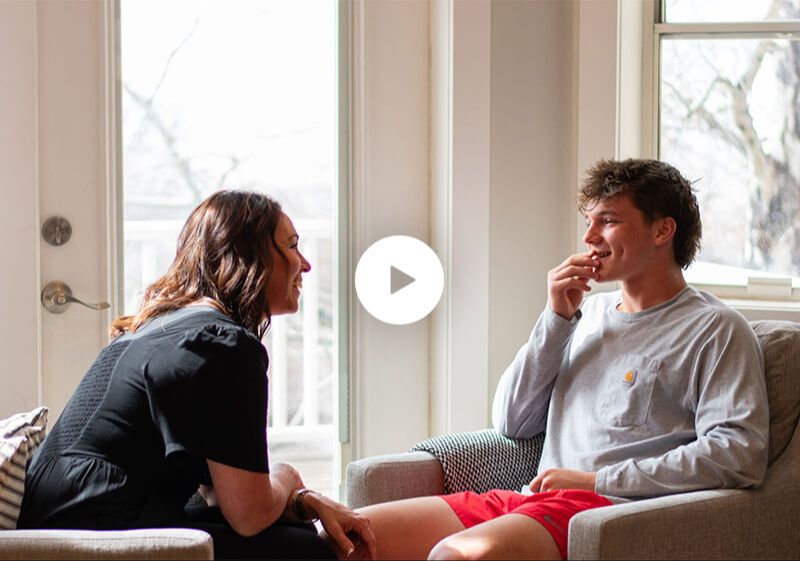The Weight of Worry: How to Stop Letting It Control Your Parenting (and What to do Instead)
Apr 14, 2025
Is your worry driving a wedge between you and your teenage son?
You’re not alone, and no, I’m not about to tell you to “just stop worrying.” That’s not helpful. In fact, it’s dismissive.
What is helpful?
Understanding what worry really is, how it affects you (and your parenting), and what you can do to shift out of it without pretending you're not scared. In this post, I’ll walk you through:
-
Why worry feels like love, but isn’t
-
The emotional cost of rehearsing worst-case scenarios
-
The parenting behaviors that worry triggers
-
One real-life story from my own house
-
Five coaching questions to shift you from anxiety to connection
Let’s dig in.
Why Worry Feels Like Love (But Isn’t)
Worry gets sneaky.
It wears a mask that looks like love, concern, protection, care.
But there’s one big difference:
Love energizes. Worry drains.
-
Love moves us toward our sons with openness, trust, and presence.
-
Worry pushes us into control, overthinking, and anxiety.
It zaps our energy.
It disconnects us.
It starts small and grows—fast.
What starts as “I hope he’s doing okay at school…”
Quickly becomes “He’s going to fail. He’ll never graduate. He’s going to end up living in my basement playing video games forever.”
Sound familiar?
Worry builds a case. And once it gets going, it feels impossible to stop.
The Emotional Toll of Worry
Here’s what’s really happening:
When we worry, we’re trying to emotionally prepare for pain.
“If I imagine him failing, I won’t be as hurt if it happens.”
But here’s the problem:
-
You feel disappointment now.
-
You feel it again later if it actually happens.
-
You live the pain twice (or 100 times).
All in the name of “just in case.”
And guess what?
85% of what we worry about never happens.
And for the 15% that does? Most people handle it better than they expected.
So all that worrying?
It’s not preparing you. It’s exhausting you.
And worse it’s showing up in your parenting.
A Personal Story: When I Parent From Fear
Even as a coach, I catch myself falling into this trap.
Recently, my 17-year-old son was heading out of town for spring break with friends. Trusted family. Great setup. But my mom brain? It spun out.
I started in on the curfew.
Then: “Clean up after yourself.”
Then: “Don’t be a burden.”
Then: “Ask how you can help.”
It was nonstop.
He turned to me and said, “Mom, I got it.”
But I couldn’t let it go.
After he left for practice, I ran through it again in my mind. Still worried. Still spiraling.
So when he came home, I asked again,
“Do you have any questions about curfew?”
And that’s when I saw it his frustration, his withdrawal.
What he was hearing was,
“I don’t trust you.”
Even though I was saying “I love you,”
What I was really communicating was, “I don’t believe you’ll follow through.”
That’s the cost of parenting from worry.
It turns us into:
-
Over-explainers
-
Micromanagers
-
Control freaks (even the well-meaning kind)
And ultimately, it disconnects us from the son we’re trying so hard to protect.
5 Transformative Questions to Shift From Worry to Wisdom
So what can you do instead?
You don’t need to pretend you’re not scared.
You don’t need to stop caring.
You just need to channel that energy into something more effective.
Here are five powerful questions to ask yourself and your son:
1. What would be most helpful right now?
Ask this instead of jumping in with a solution.
You’re teaching him to reflect, identify his needs, and speak them.
2. How do you know that I love you?
This one is gold.
It reveals his experience of love, not your assumption.
You may think it’s the dinners, the rides, the laundry.
He may say it’s the Friday afternoon soda runs.
Once you know, you can do more of what actually connects.
3. Is this love or is this fear?
Before you speak or act, pause and ask:
Am I operating from love or fear disguised as love?
4. What am I trying to prevent?
Get honest. Are you trying to avoid embarrassment? Disappointment? Pain?
Naming the fear takes away its power.
5. What message am I sending right now?
Even if your words sound “supportive,” your tone, repetition, and body language may be screaming:
“I don’t trust you.”
Slow down. Say it once. Breathe.
The Bottom Line
You’re not a bad mom for worrying.
You’re a human mom with a human brain.
But when worry takes the wheel, you lose connection, power, and peace.
And your son? He feels it.
Let’s shift that.
Instead of rehearsing what could go wrong…
Let’s learn to parent from a place of wisdom, trust, and presence.
Because your worry doesn’t protect him.
But your wisdom does.
Want more conversations like this?
Join our private Facebook community for moms raising teenage boys. We talk about real-life challenges, share strategies, and lift each other up—because you don’t have to do this alone.
👉 Join “Raising Boys, Building Men” on Facebook
Additional Support:
Visit our website Raisingboysbuildingmen.com HERE
Schedule a FREE Relationship Reconnection Call with Me HERE
Follow us on Instagram HERE
Grab 8 tips to connect with your son today HERE
Related Episodes You Might Like:
How Self-Doubt Sabotages Motherhood Plus a Simple 3-Step Solution Every Mom Needs









